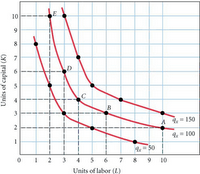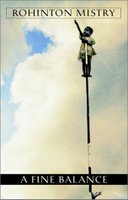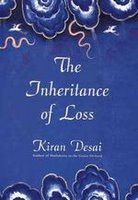The scourge of Delhi Belly 
Since my arrival in the land of sensual assault (noisy views, loud tastes, riotous sounds and obnoxious odours), I have so far managed to stave off the lewd advances of Delhi Belly. Holding thumbs.
The land of servants and their assistant servants
Servants for everything. Servants to help the servants. Servants to stand around and watch the servants that help the servants. In comparison, rural Africa runs like a well oiled machine.
The quest for the Dalai Lama and the subsequent discovery of the existence of the unfairly incarcerated Panchen Lama (16) 
Many Tibetans now live in the seemingly futile hope of regaining their stolen land from China. Daramsala, a small mountain village, persists in an otherworldly bubble looking 40 years into the past. As it happens, our visit fell over the time when the Tibetan refugees were conducting a major protest aimed at the Chinese President’s state visit to India. Their protests seem to fall on deaf ears though, and despite the efforts of His Holiness the 14th Dalai Lama, the fate of the Tibetans looks bleak, especially when you consider that most of the Tibetans in India were born outside of Tibet, ‘refugees’ from birth.
While we were there we also learned about the imprisoned Panchen Lama (16) untimely ripped from divine service by the enemy. At 6, he

was the youngest political prisoner ever. Unfortunately for him, by being recognised as the 11th reincarnation of the Panchen Lama he and his family have been imprisoned somewhere in China for the last 10 years.
The quest for sleep on the Bus of Death
No rest for the wicked, good, and the indifferent in the “luxury” bus away from the mountains. *
The quest for the Tyger Part 1**
Searches for India’s Pride proved fruitless on Day 1 of the Corbett Park situation. The country’s 1.1 billion people have not left much land for the Tyger.
The quest for the Tyger Part 2 – Elephant Ennui
The crack of dawn sees us (unusually) wide awake to take a ride on Sonibala our leisurely elephant. We strolled into the valley and meandered through the wet grass at sunrise. Not quite “teeming with game”, but some deer and elephants were around. No sniff of our Tyger though.
The quest for the Tyger Part 3 – A near miss 
A late start led to a near miss, but we spotted the Tyger! We knew it was around because the other two vehicles couldn’t stop telling us how many great views they’d just had, and how they hoped we’d get one too. I would have hated them if we had not ended up seeing it... But the Tyger crossed the road right in front of us, then allowed us to watch him stalk some nondescript buck (all brown). No point in going to the Tiger Park and without seeing a Tyger. So well done team.***
Agran Chagrin 
The architectural masterpiece built by Shah Jahan in his grief for his lost wife ironically became a symbol of devastation for us too. It turns out that the Taj Mahal is closed on Fridays. Some tourism genius must have picked the first day of the weekend for the Taj’s weekly bath. It threw a bit of a dampener on our daytrip to Agra, which incidentally takes about 5 hours to reach from Delhi (200kms away) on India’s superb express train. Also, 5 hours back, of course. But we ended up in a restaurant that afforded us some moderately good views, and the other views we bought in postcard format, which is almost as good.****
*On the road
For guaranteed safety and comfort we opted for the deluxe bus for McLeod Ganj overnight rather than the far more temperamental and infamous municipal bus. It turned out that we needn’t have bothered. The bus careened down the windy pass from McLeod Ganj tossing its passengers and their innards violently from side to side. We tried to distract ourselves by playing cards but the lights were not working and we very quickly both started feeling a little car sick. Brian tried to lie down but bounced so high as we hit a bump in the road (of which there were many) that he rapidly sat up again.
Hair pin bends did not intimidate this driver. Nothing would slow him down. Slower traffic was pushed out the way with a disdainful hoot and a menacing air. Sleeping proved impossible with teeth clenched and body braced at all time for the inevitable collision. There were at least five times in the nights where I was adamantly convinced I was going to die. At one point we hit a bump and were airborne long enough for me to clutch the shout “Oh my God, we’re going to die.”
Efforts to sleep were not aided by the freezing draught pervading the bus due to the windows that stubbornly refused to stay shut. Fortuitously, Brian had relieved a grateful McLeod Ganj street vendor of half his stock of Tibetan blankets which prevented us dying of hyperthermia. This bus driver obviously had some sort of pressing engagement. Not only did we arrive an hour early (HIGHLY unusual) but on arrival, he gave us all of ten seconds to gather our wits and belongings about us and disembark before screeching off again.
**Far from the madding crowd
My booking mission could well have been all for naught had I been following the news and seen that for the previous 2 weeks, Corbett had been closed due to strikes. Aside from being sent from pillar to post a few times on our arrival, it turned out quite  serendipitously for us as the rest of the guests cancelled their reservations and we made up a third of the compliment of the guests in the camp and had the reserve completely to ourselves.
serendipitously for us as the rest of the guests cancelled their reservations and we made up a third of the compliment of the guests in the camp and had the reserve completely to ourselves.
***The Tiger Dance
As I was resigning myself to the reality that we were not going to see a tiger, an enormous, dark brown and beautiful male across the road in front of us. I attribute this virtually unheard of sighting almost entirely to my tiger dance (much like a rain dance) with accompanying lyrics which I perfected during hours of patient tiger waiting.
****School Boy Error 
We spent the morning trawling the perimeter of the Taj with the other losers that didn’t get the memo that it is closed for cleaning on Fridays. I felt better when we met a group of three Spanish guys who had arrived the day before but left going to the Taj to the Friday. Misery loves company.















